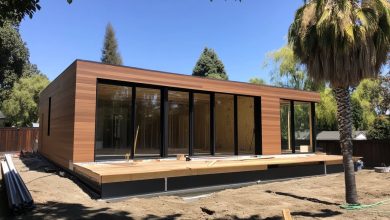
Table of Contents
ToggleNew York’s medical marijuana program, established through the Compassionate Care Act in 2014, has significantly transformed healthcare options for patients with specific qualifying conditions. The New York Medical Marijuana Card, commonly known as the MMJ card, plays a crucial role in this program by providing patients with legal access to medical cannabis. This article explores the eligibility criteria, application process, benefits, and other key details regarding the New York Medical Marijuana Card, offering a thorough guide to understanding how it works and how to obtain one.
What is a New York Medical Marijuana Card?
The New York Medical Marijuana Card (MMJ card) is an official document issued by the New York State Department of Health (DOH) that allows patients with qualifying conditions to legally use medical marijuana for therapeutic purposes. The card is a key component of the state’s medical marijuana program, which provides a legal framework for patients to access cannabis for the treatment of serious medical conditions that have not responded well to traditional treatments.
Obtaining a New York medical marijuana card enables patients to purchase medical cannabis from state-licensed dispensaries. It also protects individuals from legal consequences related to possessing or using marijuana for medicinal purposes. The card serves as proof that the individual is enrolled in the medical marijuana program and has been evaluated by a licensed healthcare provider.
Qualifying Conditions for a New York Medical Marijuana Card
To apply for a New York Medical Marijuana Card, patients must have a qualifying medical condition. The New York State Department of Health has designated a list of conditions that are eligible for medical cannabis treatment. These conditions include:
- Cancer – Medical marijuana can help alleviate symptoms associated with cancer, such as pain, nausea, and appetite loss, especially during chemotherapy.
- HIV/AIDS – Patients with HIV/AIDS can benefit from medical cannabis to manage symptoms like pain, nausea, weight loss, and fatigue.
- Amyotrophic Lateral Sclerosis (ALS) – ALS patients may use medical marijuana to alleviate muscle spasticity, pain, and other related symptoms.
- Parkinson’s Disease – Cannabis may be prescribed to manage tremors, muscle rigidity, and other Parkinson’s disease symptoms.
- Multiple Sclerosis (MS) – MS patients often use medical marijuana to manage spasticity, muscle pain, and fatigue.
- Spinal Cord Injury – Patients with spinal cord injuries can use cannabis to manage pain, muscle spasms, and other complications.
- Epilepsy – Medical marijuana is often used to control seizures, especially in patients whose epilepsy is resistant to conventional treatments.
- Inflammatory Bowel Disease (IBD) – Conditions like Crohn’s disease and ulcerative colitis may be treated with medical cannabis to reduce pain, inflammation, and gastrointestinal discomfort.
- Chronic Pain – Patients with chronic pain, particularly those with conditions like arthritis or fibromyalgia, may be eligible for medical marijuana treatment.
- Post-Traumatic Stress Disorder (PTSD) – PTSD patients, particularly veterans, can use cannabis to alleviate symptoms such as anxiety, flashbacks, and insomnia.
- Severe or Persistent Muscle Spasms – Conditions that cause intense muscle spasms, such as MS or cerebral palsy, may be treated with medical marijuana.
- Glaucoma – Medical cannabis may be used to reduce intraocular pressure and prevent vision loss in glaucoma patients.
Additionally, patients with other debilitating medical conditions that do not respond to traditional treatments may be considered for the program on a case-by-case basis.
Eligibility Requirements for a New York Medical Marijuana Card
To be eligible for a New York Medical Marijuana Card, patients must meet specific requirements:
Age Requirement
- Patients must be at least 18 years old to apply for an MMJ card. If the patient is a minor, they can still apply, but they need parental consent, and a designated caregiver must be involved in administering the medication.
New York State Residency
- Applicants must be residents of New York State and provide proof of residency, such as a valid New York State driver’s license or a utility bill with their name and address.
Diagnosis of a Qualifying Condition
- Patients must have a documented diagnosis of one of the qualifying conditions listed above. This diagnosis must be made by a licensed healthcare provider who is registered with the New York State Department of Health.
Consultation with a Registered Healthcare Provider
- Patients must consult with a registered healthcare provider who is authorized by the New York State Department of Health to recommend medical marijuana. The provider will assess the patient’s medical history, current symptoms, and treatment needs to determine whether medical cannabis is a suitable option.
How to Apply for a New York Medical Marijuana Card
The process of obtaining a New York Medical Marijuana Card involves several key steps, which we’ll explore below:
Find a Registered Healthcare Provider
Before applying for the MMJ card, patients must meet with a healthcare provider who is registered with the New York State Medical Marijuana Program. This consultation is critical to determine whether medical marijuana is an appropriate treatment for the patient’s condition. The provider will evaluate the patient’s medical history, symptoms, and other treatments tried in the past.
The healthcare provider will issue a medical marijuana certification if the patient is eligible, which is a mandatory requirement for applying for the MMJ card.
Complete the Online Application
Once the healthcare provider has issued a certification, the patient can begin the application process. The New York State Department of Health requires patients to submit their application online via the Medical Marijuana Program’s website.
Patients will need to provide the following information during the application process:
- Proof of identity (such as a New York State driver’s license or state-issued ID).
- Proof of New York State residency (e.g., a utility bill or lease agreement).
- A copy of the certification from the registered healthcare provider.
- Payment for the application fee (typically around $50, but it may be waived for patients with financial hardship).
Wait for Approval
After submitting the application, the New York State Department of Health will review the provided documents. This approval process can take several weeks, so patients must remain patient during this time.
Once the application is approved, the patient will receive their official medical marijuana card in the mail. This card will allow them to legally access medical cannabis from licensed dispensaries throughout New York State.
Visit a Licensed Dispensary
Once the MMJ card is received, patients can visit one of New York’s licensed dispensaries to purchase medical cannabis products. These dispensaries offer a range of products, including edibles, oils, tinctures, capsules, vaporizers, and smokable cannabis flower. Patients are allowed to purchase a certain amount of cannabis based on their treatment needs and the dosage recommended by their healthcare provider.
Benefits of a New York Medical Marijuana Card
There are several advantages to having a New York Medical Marijuana Card. These benefits include:
Legal Access to Medical Marijuana
The primary benefit of an MMJ card is the legal ability to purchase medical marijuana from licensed dispensaries. This access allows patients to legally possess and use medical cannabis for treatment, ensuring they are protected from legal repercussions associated with cannabis use.
Wide Range of Products
Patients with a medical marijuana card have access to a diverse selection of cannabis products tailored to their medical needs. From tinctures and oils to smokable flower and edibles, patients can choose the product that works best for their symptoms.
Protection from Legal Consequences
Having an MMJ card protects patients from legal issues related to marijuana use. While recreational marijuana is legal in New York for adults 21 and over, medical marijuana use is restricted to those with qualifying conditions. The card provides legal protection for those using cannabis for medical reasons.
Exemption from Sales Tax
Medical marijuana purchases are exempt from state sales tax in New York, making cannabis products more affordable for patients who need regular access to medical marijuana for treatment.
Ongoing Medical Supervision
Once approved for medical marijuana use, patients are regularly monitored by their healthcare provider. This ensures that they are using cannabis appropriately and safely. Providers may adjust the treatment plan based on the patient’s progress and any changes in their symptoms or condition.
A Natural and Alternative Treatment Option
Many patients seek medical marijuana as an alternative to prescription medications, particularly opioids, due to the potential for addiction or adverse side effects. Cannabis offers a natural treatment option with fewer side effects for many patients.
Cost of the MMJ Card
The cost of obtaining an MMJ card in New York varies. The application fee typically costs around $50, but the fee may be waived for patients who meet financial hardship criteria. Additionally, patients will need to pay for their medical marijuana purchases at licensed dispensaries, and the prices of these products can vary widely depending on the type of cannabis product and its potency.
Conclusion
The New York Medical Marijuana Card provides an essential pathway for patients suffering from qualifying medical conditions to access safe, legal cannabis for medicinal purposes. With a comprehensive process that includes consultation with a registered healthcare provider and an online application, patients can benefit from an alternative treatment option that may alleviate symptoms and improve their quality of life. Whether managing chronic pain, anxiety, or other qualifying conditions, the MMJ card in New York ensures that patients have access to regulated, tested, and effective cannabis products under medical supervision.









